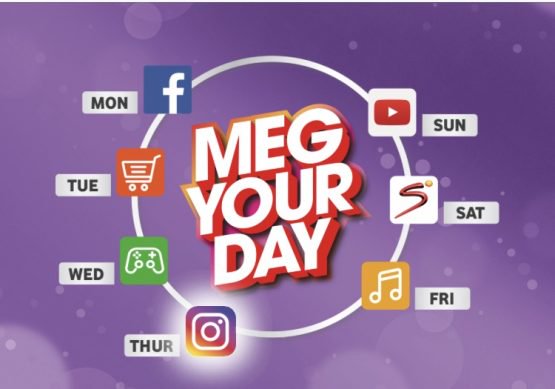How Vodacom is changing the way you use – and pay for – the internet
Market leader’s Meg Your Day prepares us for a future of snackable, app-specific bundles.
Vodacom’s Meg Your Day promotion, which offers subscribers up to 1GB of free data to use on specific services/apps, is changing the way we use the mobile internet. Of course, Vodacom is not giving away free Facebook, Instagram and video data for some altruistic motive. Rather, it is training us to get used to the idea of data bundles for specific applications or services. Here’s how (and why):
Meg Your Day, which runs from mid-June to end-September, offers Vodacom customers with a data balance (and smartphone) free data for specific apps/services on each day of the week. They need to opt-in to this daily. So, for example, on Mondays subscribers get up to 1GB of Facebook data (these bundles run alongside your ‘normal’ one and balances are available in the app). Video services (sports and YouTube) are reserved for Saturdays and Sundays when its network is generally under far less load.

Picture: Supplied
First, this drives a change in behaviour where customers begin to get used to opening the My Vodacom app every morning. The importance of this cannot be underscored enough. This operator expects this channel to be the primary interface with customers and it is already using this to surface user-specific, personalised offers. These “Just 4 You” voice and data bundles are already being used by nearly ten million customers, with 728 million offers sold to end-March (an increase of 150% on FY2016). Behind the scenes, big data and machine learning is being leveraged to provide real-time, segmented and contextual offers to customers. This change to segmentation and accurate targeting drives spending and consumption.
The free data being offered during the Meg Your Day promotion is a tactical way to get its 20 million-plus data customers to get comfortable with app-specific bundles. Of course, this drives additional consumption on days when the data for Facebook, for example, is not free, but this is not the point.
Vodacom has quietly started promoting app-specific bundles to customers via SMS. So, for example, you might receive a message on a Saturday (because it “knows” you’re mobile and not connected to Wi-Fi, plus it has a handle on your historical usage of free Instagram data during Meg Your Day) offering 250MB of Instagram data for R12. Buying a 250MB bundle outright costs R59, so one can see the appeal here. Offers are accessible via the *634# USSD code.
These are not likely to be huge multi-gigabyte bundles. They’ll be what the operator terms “micro bundles” (think 20MB, 50MB, 100MB, etc.) and will generally expire at midnight (i.e. same day).

Picture: Moneyweb
In the bandwidth-intensive video space, Vodacom has also launched bundles for video-on-demand (VOD) consumption. So, 1GB of data to use on Showmax, for example, costs R75 (versus R149 for a ‘standard’ 1GB bundle). Expect further iteration to include other services as well as allowing for scheduled (after peak) downloads at vastly reduced prices.

Picture: Moneyweb
Given that bundles, particularly in the data space, are the cornerstone of Vodacom’s strategy, this innovation is not going to stop. It has been a trailblazer in the bundle environment (think back to the highly successful “Power Hour” and derivative prepaid bundles). Rivals MTN, Cell C and Telkom have a lot of catching up to do… WhatsApp bundles are not going to cut it. It is going to be especially interesting to see what strategies MTN implements from its other markets (where there tends to be a lot more innovation than in its home operation).
From a consumer point of view, these app-specific bundles mean lower prices. Older customers (“olds” as the millennials call them!) likely won’t fuss with this sort of thing, but the younger generation are savvy. Instagram and Facebook (with their increased focus on video) and YouTube consume a ton of data and this will help force the change in behaviour.
Finally, from a regulatory point of view, this move to app-specific bundles will see a further abstraction of tariffs, i.e. the prices we pay for data and voice, from those filed with the Independent Communications Authority of South Africa (Icasa). Already, it is entirely unclear how Icasa could hope to regulate data tariffs on personalised/segmented offers. Trying to do so, or to regulate any app- or service-specific bundle is neither practical nor constructive (or indeed desirable). Let consumers choose.
*Hilton Tarrant works at immedia. He can still be contacted at hilton@moneyweb.co.za.
*He owns shares in Vodacom, first purchased in June 2013.
Brought to you by Moneyweb







